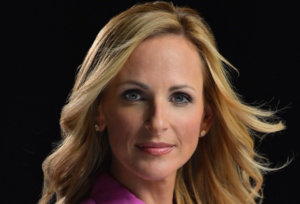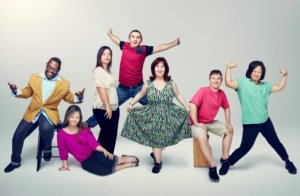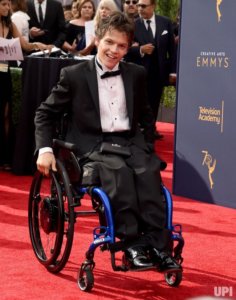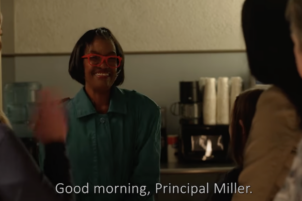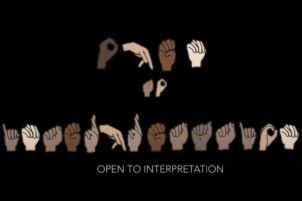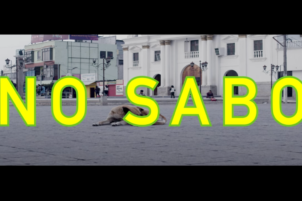Follows Season 4 of Born This Way, unscripted reality show breaking down disability stigmas, which was nominated for four Creative Arts Emmy Awards last weekend
Los Angeles, California, Sept. 10 – On the heels of the Creative Arts Emmy Awards this weekend, a new documentary special will air on A&E on Wednesday. Executive produced by Academy Award-winner Marlee Matlin, Deaf Out Loud follows three predominantly deaf families as they raise their children in a hearing world. With many differing opinions about how deaf children should be raised swirling in the social consciousness, these families work to forge their own paths forward and combat the daily social stigmas many deaf people face.
Misconceptions exist about deaf individuals – from schooling, to employment and raising a family. Shows like Deaf Out Loud aim to change these misperceptions and has the potential to bring awareness and better understanding about people who are deaf. This show delves into the various ways Deaf culture is expressed and embraced in the United States. The three families will show viewers the diversity of Deaf culture today, and how it differs from hearing cultures.
“People of all backgrounds need to see positive representations of themselves, both as people with satisfying personal lives and as people who can perform successfully in the workplace,” Executive Producer Jonathan Murray said. “Those positive images will change for the better the way the greater society sees people who are deaf and those with disabilities, opening up more opportunities for them.”
Representing #DeafCulture on TV and Film
As with representation of people with all types of disabilities, Deaf individuals are underrepresented in television and film. There are some good examples, however. Among them are Quantico, featuring Matlin; The Silent Child, showcasing the talents of six-year-old Maisie Sly, who uses British sign language; Baby Driver, with a moving performance by the African-American deaf actor C.J. Jones; and Wonderstruck in which deaf newcomer Millicent Simmonds astonished critics and audiences with a magnificent, visually expressive performance.
Deaf film producer Delbert Whetter explained the importance of using authentic deaf actors in a piece for The Hollywood Reporter. “Sign language has tremendous cinematic properties, with unique and complex forms of inflection, intonation and pitch that can take years to master but can amplify and deepen performances in ways accessible to all audiences,” he wrote.
Deaf Out Loud is produced by Bunim/Murray Productions, which has produced a variety of diverse reality-based television, including The Real World, Keeping Up with the Kardashians and Born This Way.
Presented By Inclusive Reality TV Show Born This Way
Deaf Out Loud follows the fourth season of the critically acclaimed award-winning original docuseries Born This Way, which had four Emmy nominations this past weekend but did not win any of them. In total, Born This Way has 13 nominations and three wins including the Emmy for Outstanding Unstructured Reality Series in 2016, and for Casting for a Reality Program and Cinematography for a Reality Program in 2017.
Born This Way, an unscripted reality show, follows a group of seven young adults with Down syndrome along with their family and friends in Southern California. Because its focus is on showing their everyday lives, including employment, efforts for independent housing, loves and more, Born this Way breaks down stigmas surrounding disability.
Inclusion at Creative Arts Emmy Awards
Micah Fowler, an actor with cerebral palsy on Speechless, presented during the first night of the Creative Arts Awards. Speechless is a sitcom centered on a family that happens to include a son with cerebral palsy, J.J. The show revolves around his everyday life as well as his family and friends.
J.J., the oldest sibling, uses assisted technology, as well as his aide Kenneth, to speak. The fact that J.J. is played by Fowler, an actor with cerebral palsy, is important. Actors without disabilities play more than 95 percent of characters with disabilities on television.
Born This Way cast members Rachel Osterbach and John Tucker made history when they became the first individuals with Down syndrome to present at any major awards ceremony when they presented awards in three categories at the Creative Arts Emmys last year.
Increasing Disability Inclusion in Television
Disability often is absent from mainstream film and television — both the depiction of it, and even when a character has a disability, the actor often does not. According to the 2017 Gay & Lesbian Alliance Against Defamation (GLAAD) report Where We Are on TV, the number of regular primetime broadcast characters who have a disability is at 1.8 percent, representing only a fraction of the one-in-five individuals who has a disability in the world today. Moreover the Ruderman White Paper on Disability in Television report found that an actor without a disability plays more than 95 percent of characters with disabilities. Furthermore, a recent report by The Media, Diversity, & Social Change (MDSC) Initiative at USC’s Annenberg School for Communication and Journalism found that only 2.7 percent of all speaking or named characters in film were shown to have a disability in 2016 (up from 2.4 percent in 2015). None of the leading characters were from an underrepresented racial/ethnic group or the LGBT community.
Murray said the cast members of Born This Way and Deaf Out Loud remind all of us that, “every individual has something to contribute.”
“In thinking about these shows, we wanted to focus on the ability within the disability and I think that is what is exciting to see,” said Murray. “We also are very proud of the fact that our casts are diverse. Born This Way has a cast that includes people who are African American, Hispanic and Asian. This is a breakthrough for those minority communities as well.”
The inclusion of John Tucker who is African American, Elena Ashmore whose mother is from Japan and whose storyline includes the immigrant experience and Cristina Sanz who is a Hispanic woman is important for several reasons. One is that when disability is depicted in pop culture, it tends to be all white. Real story telling requires exploring people with multiple minority status (i.e. African American + disability). Secondly, far too many African Americans and Hispanics/Latinos in America who have a developmental disability are not receiving the diagnosis, school accommodations and high expectations they need to succeed. Today only 65 percent of students with disabilities graduate high school and only seven percent complete college. In addition, there are 750,000 people with disabilities behind bars in America – and the majority of them are people of color.
Ashmore, Tucker, Sanz and the other cast members, along with their families, are models of how disability can and should be accepted and addressed in minority communities. They are not alone as there are many role models who are African American, Hispanic/Latino or another minority with a disability. But the lack of self-representation points to a systemic problem of ableism—discrimination against people with disabilities—in the television industry. It also points to a pervasive stigma among audience members against people with disabilities given that there is no widespread outcry against this practice.
Last year was the first time the Television Academy presented an award for Casting for a Reality Program, which Sasha Alpert and Megan Sleeper won for Born This Way.
“Everyone experiences powerful stories,” Alpert said. “By not including a diverse group of people, we are limiting our ability to tell compelling stories. If we make television that doesn’t embrace the various populations around us, we limit the narratives we tell.”
RespectAbility, a nonprofit organization fighting stigmas and advancing opportunities for people with disabilities, has been honored to consult during the creation of Born This Way and Deaf Out Loud.
“A&E’s Born This Way continues to break the glass ceiling for people with disabilities of all backgrounds,” RespectAbility President Jennifer Laszlo Mizrahi said. “Programs like Born This Way and Deaf Out Loud that feature people with disabilities, or that tackle disability issues in a positive light, can be successful both critically and financially. Audiences want to see strong, capable role models with disabilities.”
Murray agrees that shows like Born This Way and Deaf Out Loud, as well as more diversity in Hollywood, are good business.
“Hollywood has been really, really slow to recognize the diversity of this country,” he said. “I think it is catching up fast now. And I think it’s realizing that diversity is good business. I don’t think it’s necessarily because it is altruistic. I think they are recognizing that TV shows will do better if they reflect what the country is.”
During its first season, Born This Way grew across all demographics each episode, with adults 25-54 up 84 percent, adults 18-49 up 64 percent and total viewership up 67 percent by the end of the season.
According to the U.S. Census, one in five Americans has a disability. Currently 70 percent of working-age people with disabilities are not working — even though most of them want jobs and independence. The numbers are even worse for people with Down syndrome. According to the National Down Syndrome Society, there are more than 400,000 people with Down syndrome. Many studies show people with disabilities, including those with Down syndrome, can work successfully and live relatively independently. The individuals on Born this Way prove this since several are productive employees and several are business owners as well.
Since the premiere of Born This Way, there has been good news on the employment front. There were four times as many new jobs for people with disabilities created in the U.S. in 2016 versus 2015. 343,483 new jobs were filled by people with disabilities.
Deaf Out Loud airs on Wednesday, September 12 at 8:00 p.m. ET / 7:00 p.m. CT.


